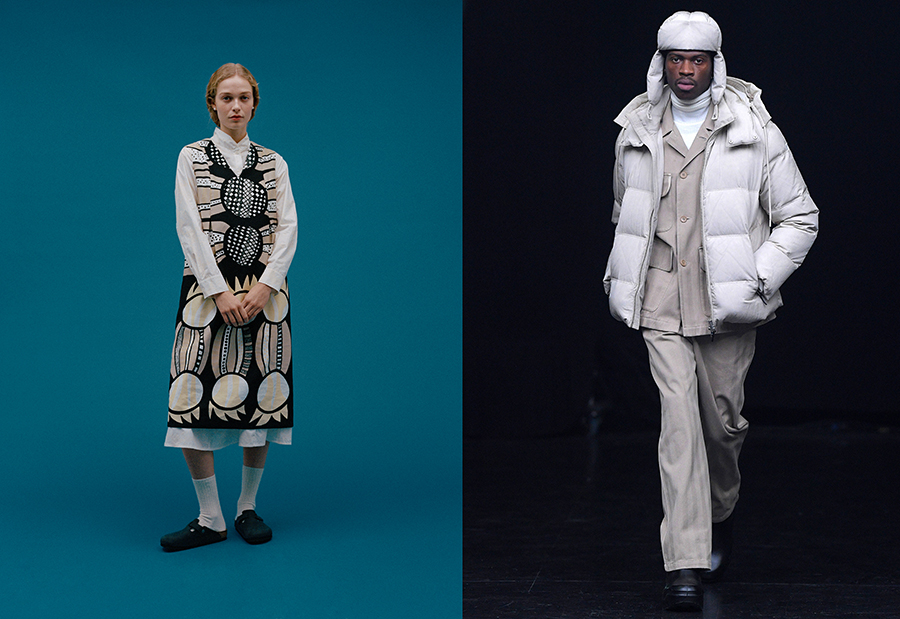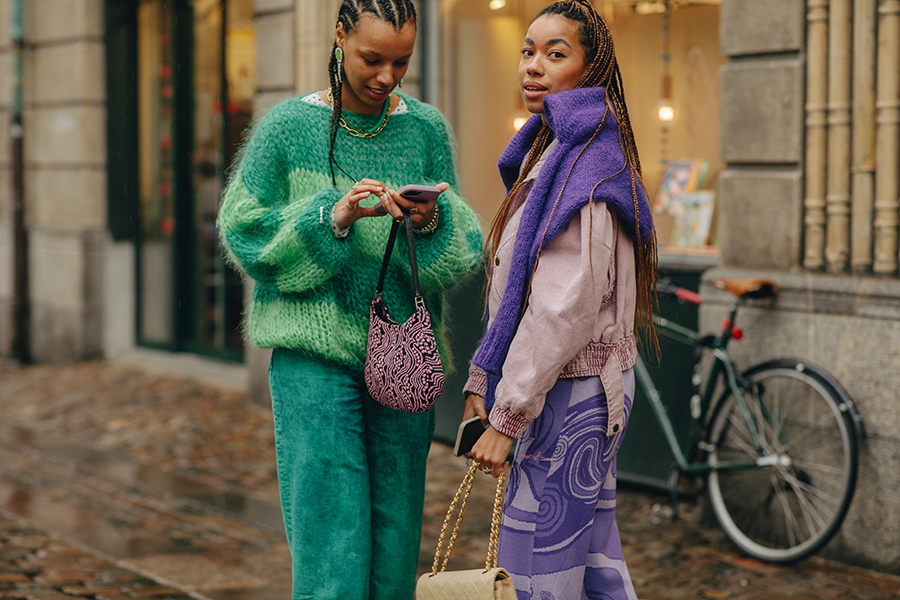In early 2019, Copenhagen Fashion Week announced its ambition to transition and develop into a pioneering, sustainable event.
Their requirements stipulate that brands must achieve a specific score to be eligible to apply for a show or presentation on the official schedule of Fashion Week. All shows must comply fully with 17 minimum standards or they will not be considered for participation, regardless of how high their overall score is. Some examples of these standards are pledging not to destroy unsold clothes; using at least 50% certified, organic, upcycled, or recycled textiles in all collections; using only sustainable packaging; and creating zero-waste set designs for shows.
1. The Event
The organizers measured the carbon emissions from international guests’ flights and hotel accommodations, the official opening dinner, outdoor marketing, press buses (and food and beverages on the buses), staff uniforms, and logo stickers for their car fleets. They arrived at 45 tons, which are offset through Danish carbon offset company RenSti, where they support two Verified Carbon Standard and Climate Community and Biodiversity Alliance Gold Level projects: planting trees (TIST) and forest conservation (Kariba). They also switched to a climate-neutral website and only use electric cars during Copenhagen Fashion Week. The refinements are ongoing, where they continue to identify new solutions and opportunities to reduce their carbon footprint while being transparent about using offsets to balance unavoidable carbon emissions.
Starting with a focus on single-use plastic, Copenhagen Fashion Week banned single-use plastic bottles back in 2019, a step that all shows and presentations respected. The organizers also published the 15-step Guide to a More Responsible Show, encouraging brands to, for example, use only reusable or compostable cutlery, tableware and straws; reduce food waste; and set up collection and recycling bins to facilitate waste collection after the show. Copenhagen Fashion Week also avoids single-use plastic packaging for food and snacks for guests on press buses and the international press delegation.

2. Partners
Whenever possible, they select responsible suppliers and partners who pioneer sustainable products or have established ambitious sustainability strategies. Their primary focus areas are currently food, snack, and beverage suppliers for press busses and other vehicles; merchandise partners; and the SKT Petri Hotel in Copenhagen (their ISO 14001 certified hotel partner), which hosts guests from around the world during Fashion Week.
3. The Industry
Copenhagen Fashion Week currently requires brands to describe their sustainability actions, projects, and other initiatives when applying to participate. Besides heavily spotlighting sustainable brands in the show schedule, they always reserve the opening show for a front-running, sustainability-driven brand.
A Step-by-Step Consumer Engagement Plan
- Process customer feedback and loop data into the design and development process
- Repair or redesign products
- Offer sharing services to customers
- Offer rental, leasing, resell, and sharing services to customers
- Resell used products to prolong their life
- Offer a take-back scheme to customers
- Collaborate with other initiatives or charities to increase the number of clothes collected
- Engage with local authorities on waste sorting
- Offer workshops or educational material to customers on things like product repair
- Product labels include clear care instructions featuring information on washing, caring, mending, drying, repairing, recycling, and disposal
- Offer customers the opportunity to co-create products
- Actively discourage price reductions




































